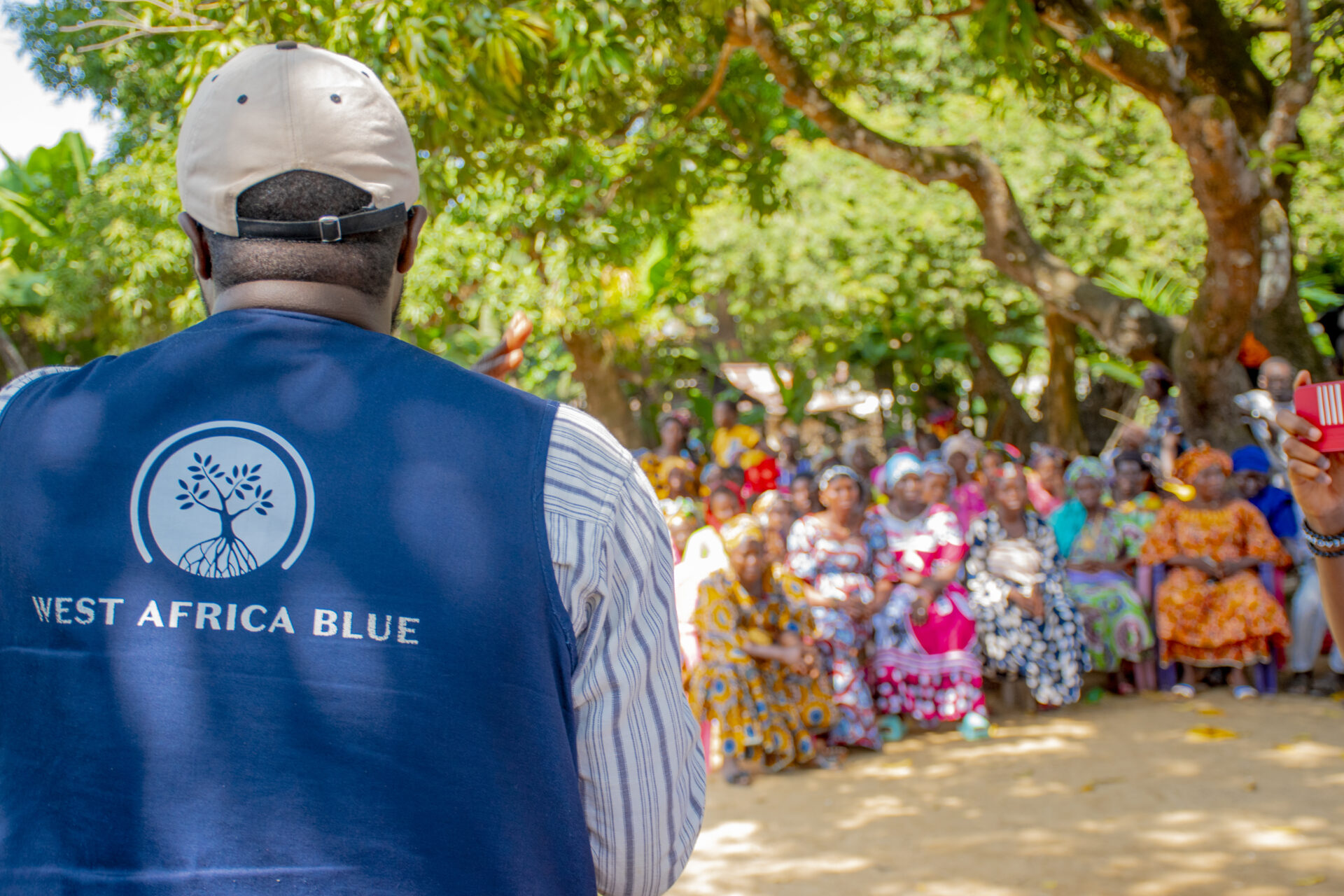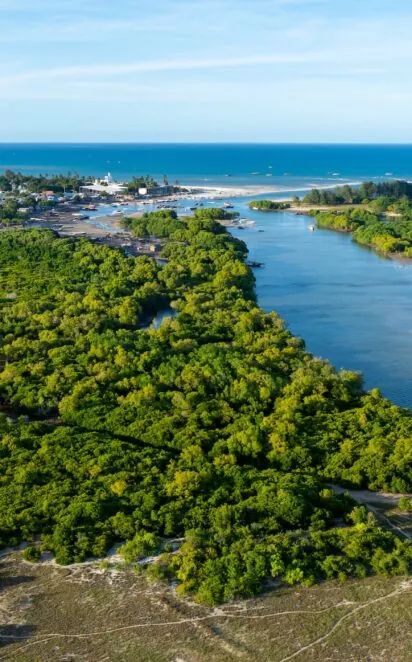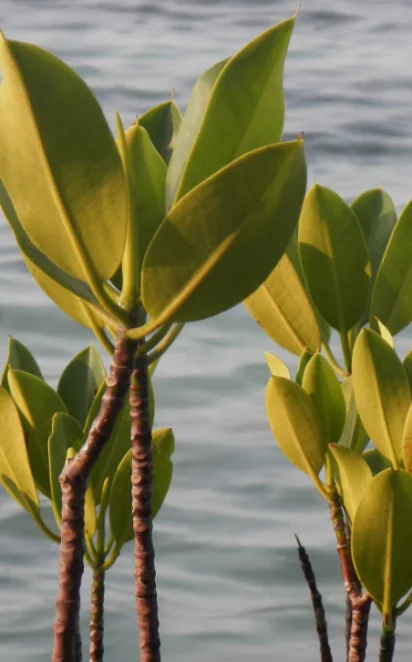Pioneering a high-integrity blue carbon initiative in Guinea
Project Lead: West Africa Blue (“Blue”)
Supporting Partners: Communities in the project areas in Forécariah and Boffa (Guinea), EcoAct (France), Hans Wilsdorf Foundation (Switzerland), The Government of Guinea – Ministry of Environment (Guinea), Kayrros (France), Kenya Marine and Fisheries Research Institute (KMFRI) (Kenya), Laboratoire National de Géologie (Guinea), Nature For Justice (U.S.), Yale University (U.S.)
Location: Guinea, Forécariah and Boffa prefectures
Project Timeline/Status: January 2025 – March 2026
Project Summary
West Africa Blue is pioneering a high-integrity blue carbon initiative in Guinea to restore mangrove forests while generating high quality carbon credits, creating a long-term, sustainable revenue stream for local communities and other stakeholders. Backed by a formal agreement with the Government of Guinea, the project is piloting the High-Quality Blue Carbon (HQBC) Principles to ensure measurable benefits for people, nature, and climate and contribute to global efforts to standardise blue carbon practices.
Through participatory planning and community-driven solutions – such as improved cookstoves, solar salt production, and more efficient rice cultivation – the project addresses the root causes of mangrove deforestation while supporting livelihoods. This initiative offers a scalable model for blue carbon projects across West Africa and other climate vulnerable coastal regions.
Challenge
Mangroves are climate superheroes—locking away carbon, shielding coastlines, and nurturing marine life. Yet in West Africa, these vital ecosystems are disappearing at an alarming rate. Over the last 30 years, 25-50% of the region’s mangroves have vanished (USAID). Illegal fishing has depleted fish stocks, while rising sea levels and erosion have flooded agricultural fields, leaving traditional fishing and farming communities with little choice but to harvest and sell mangrove wood to make an income.
Additionally, threats like rice cultivation, salt mining, and road construction compound the issue of mangrove deforestation. In Guinea, where coastal communities are among the world’s poorest and most climate vulnerable, the loss of mangroves isn’t just an environmental crisis—it’s a threat to survival. Without these natural barriers, erosion occurs even more rapidly, fish stocks dwindle further, and families lose their livelihoods.
Solution
Blue carbon is an innovative solution to protect and restore mangrove ecosystems, boosting both coastal resilience and community livelihoods. Working with communities, West Africa Blue addresses mangrove deforestation through the restoration and conservation of mangrove ecosystems, while developing high quality carbon credits. To reduce reliance on mangrove wood, the organisation is also piloting innovative solutions, including energy-efficient cookstoves, solar salt production that eliminates the need for wood-fuelled boiling, and the System of Rice Intensification (SRI), which enhances rice field productivity to prevent further mangrove clearing for agriculture.
Scaling and Next Steps
West Africa Blue, along with its technical advisors at EcoAct, has listed the project in Verra’s Verified Carbon Standard (VCS) pipeline. This marks a key milestone toward issuing high-quality blue carbon credits aligned with Verra’s Climate, Community, and Biodiversity (CCB) certification, ensuring they are sold and retired by high-integrity buyers.
The next steps involve completing socioeconomic and biodiversity baseline assessments, updating carbon modeling and financial planning, and reviewing land agreements while ensuring community participation through the Free, Prior, and Informed Consent (FPIC) process. The team will also focus on expanding key activities such as the construction of improved cookstoves, solar salt production, and more efficient rice farming. Efforts will also be made to develop a mangrove restoration plan, draft a benefit-sharing agreement (BSA), and pilot the High-Quality Blue Carbon Progress Wheel Tool.



